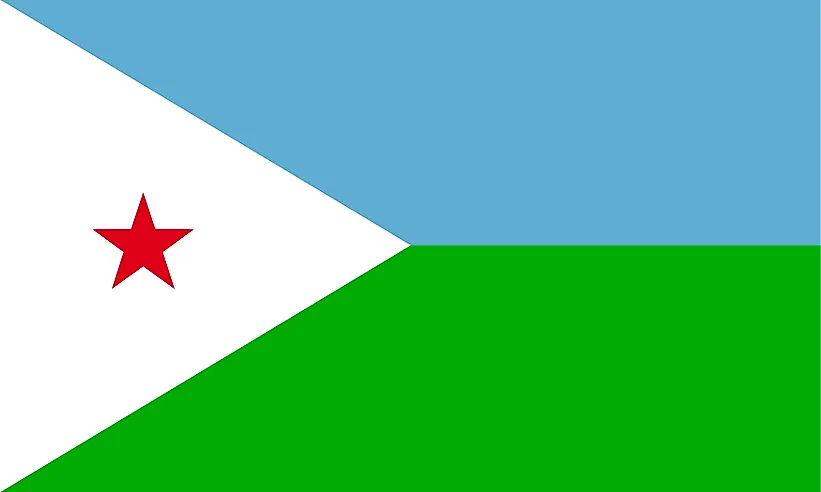
ジブチ
| 大陸 | アフリカ |
| 資本金 | ジブチ |
| 人口 | 846,687 |
| GDP | $3.35 億ドル |
| 一人当たりGDP | $3,400 |
| ダイヤルコード | +253 |
| ISOコード(2文字) | DJ |
| ISOコード(3文字) | DJI |
ジブチ 風景






ジブチについて
紅海とアデン湾の交差点に位置する、小さいながらも戦略的な国、ジブチへようこそ。人口約100万人、面積23,200平方キロメートルのジブチは、ユニークな地質学的特徴と海洋上の重要性を併せ持ち、アフリカとアラビア半島を結ぶ重要な役割を果たす国です。
地理的特徴と自然の美しさ
ジブチの地理は、火山活動や地殻変動によって形成された驚異的な景観を特徴としている。海岸平野、火山台地、山脈の3つの異なる地域がある。アッサル湖は海抜155メートルで、アフリカで最も低く、世界で3番目に低い窪地である。
エチオピアとエリトリアと共有するダナキル砂漠は、塩の干潟と火山地形が織りなす別世界のような風景が特徴だ。石灰岩の煙突があるアッベ湖は、まるで月のような風景を作り出し、映画監督や写真家を魅了している。
アデン湾から切れ込んだタジューラ湾は、ジンベエザメやさまざまな海洋生物の生息地となっている。アフリカの角に位置するこの国の気候は独特で、一年を通して暑く乾燥している。
文化遺産と伝統
ジブチの文化は、アファールやイッサソマリの伝統、アラブやフランスの植民地時代の遺産の影響を反映している。伝統的な音楽と舞踊は依然として重要な文化表現であり、ソマリア人とアファール人はそれぞれ異なる音楽の伝統を保持している。
伝統工芸には、籠細工、宝石細工、織物などがある。ジブチ料理はアフリカ、アラブ、ヨーロッパの影響を組み合わせたもので、スクデカリス(スパイスを効かせた米と肉の料理)や紅海で獲れる新鮮な魚介類が特徴だ。
この国の戦略的な立地は、歴史的に貿易商や旅行者の出会いの場となり、多文化的な性格を助長してきた。伝統的な社会構造や習慣は、今も日常生活で重要な役割を果たしている。
歴史の旅
ジブチの歴史は、アフリカとアジアを結ぶ玄関口として機能していた古代から、フランス領ソマリランドとしてフランスの植民地支配を受け、後にアファール人とイサ人のフランス領となった。1977年に独立。
この地域の戦略的重要性は、古代の交易路から現代の海上交易に至るまで、歴史を通じてその発展に影響を及ぼしてきた。ここ数十年、ジブチは貿易と軍事協力の重要な地域拠点として台頭してきた。
現代の経済状況
今日のジブチは、その戦略的立地を活かして、特に港湾サービスと物流を通じて経済を発展させている。同国は、東アフリカ、特にエチオピアに出入りする物資の主要な積み替え地点として機能している。
近代的な港湾施設、自由貿易区、鉄道網の整備により、ジブチは地域の商業ハブとしての地位を強化している。銀行や電気通信などのサービス部門も大きく成長した。
国際関係とグローバルポジション
ジブチは地域機関や国際機関に積極的に参加し、海洋安全保障や海賊対策で重要な役割を果たしている。また、戦略的重要性を反映し、複数の外国軍基地を受け入れている。
ご存知でしたか?
- アッサル湖は南極大陸以外で最も塩分濃度の高い湖ですか?
- ジブチにはアフリカで唯一の米軍常設基地がある?
- アフリカ最大の自由貿易圏を開発中の国?
- ジブチの海にはジンベエザメが生息しており、一年中見ることができる。
結論
ジブチは、地質学的驚異と戦略的重要性を併せ持つユニークな国です。火山景観から賑やかな港湾、伝統文化から近代的な物流施設に至るまで、ジブチは大陸をつなぐ重要な役割を維持しながら進化を続けています。気候変動や経済の多様化などの課題に取り組む中、ジブチは自然・文化遺産を守りながら、持続可能な発展のためにその戦略的地位を活用することに引き続き尽力しています。